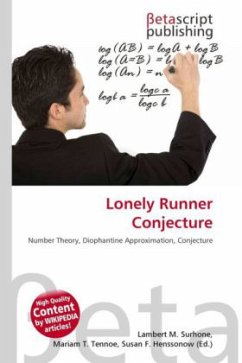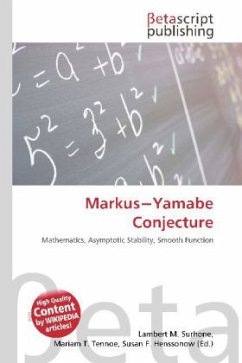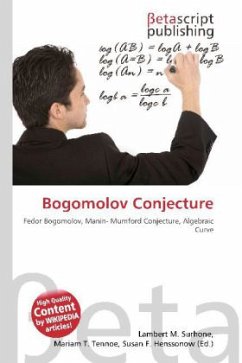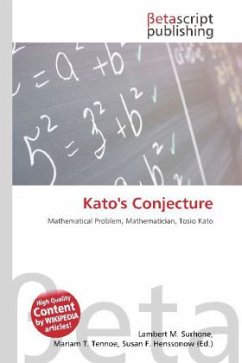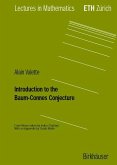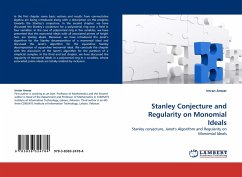High Quality Content by WIKIPEDIA articles! Catalan's conjecture (occasionally now referred to as Mih ilescu's theorem) is a theorem in number theory that was conjectured by the mathematician Eugène Charles Catalan in 1844 and proven in 2002 by Preda Mih ilescu. To understand the conjecture, notice that 23 and 32 are two powers of natural numbers, whose values 8 and 9 respectively are consecutive. The conjecture states that this is the only case of two consecutive powers. That is to say, that the only solution in the natural numbers of xa yb = 1 for x, a, y, b 1 is x = 3, a = 2, y = 2, b = 3.
Bitte wählen Sie Ihr Anliegen aus.
Rechnungen
Retourenschein anfordern
Bestellstatus
Storno



